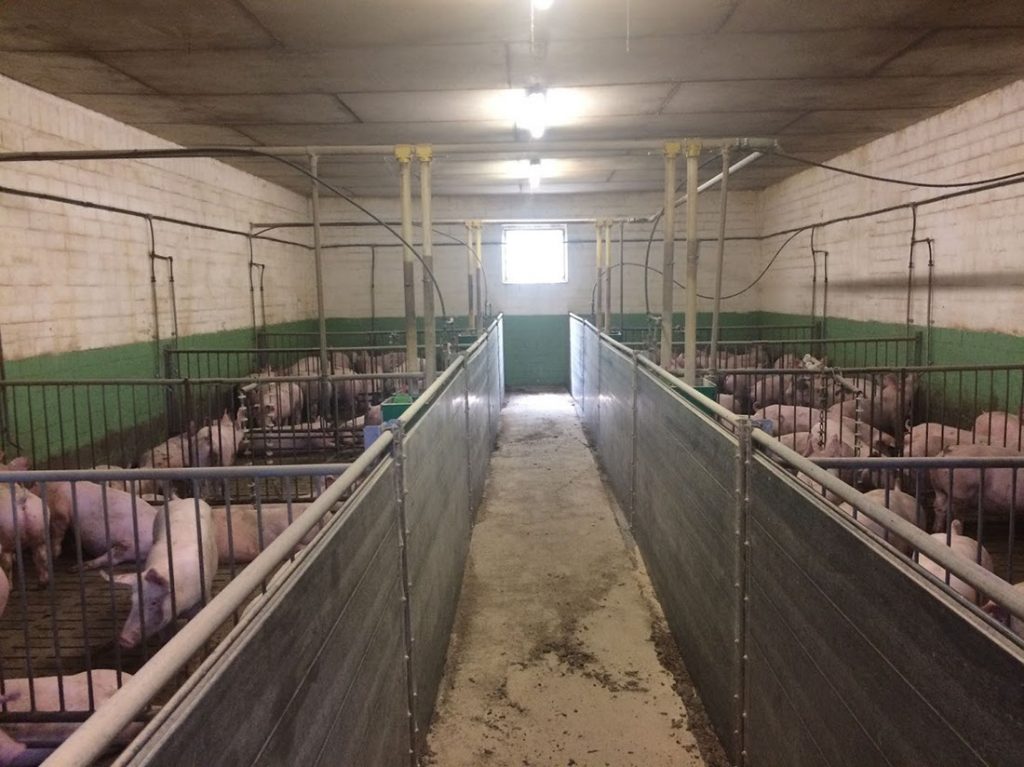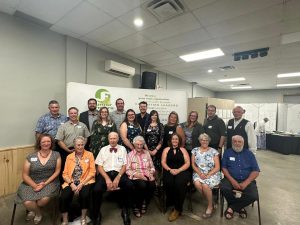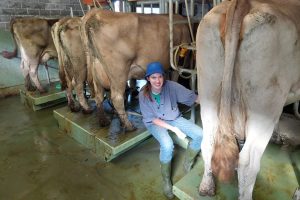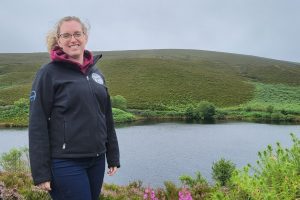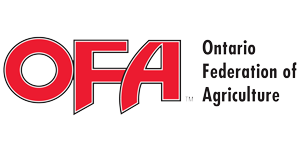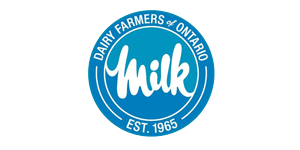by Murray Dale, Germany 2017 Exchangee
After my stay there, I traveled to Neinburg by train where Simone Ruhno picked me up. I would spend the next week with her son and her, where I would visit farms, see soccer games, Spargel festivals, and even a marathon.
One thing to note from this part of my exchange is that I learnt that Spargel, is a type of asparagus. They harvest the root of the asparagus, which is white in colour. The Germans love to eat this with their potatoes and ham chunks covered with hollandaise sauce. I had a chance to try this meal at least ten time during my stay.
Some of the farm tours included milking cows on a farm, where the owner had milked cows, in Mitchell Ontario for six months. He was in partnership, with two other farmers that owned a large bio gas plant.
The plant was 750 KW and could power the local village and provide domestic hot water for all the homes in the area. This operation was very appealing to me. However, these operations are only made possible with the German governments generous subsidies for renewable energy.
After my time here, I would travel back west to Nuebokel to a small hobby farm. Here I was able to visit a large farmer of potatoes and spargel. This farm had their own processing plant and distribution services. I was also able to visit a pig barn, open air agriculture museum, and concentration camp while I spent my time here.
My next host was back in the North of Neinburg to a young couple with a cash crop farm, specializing in carrots and soon to be garlic. I was able to see a 1000KW bio gas plant, working in an organic broiler chicken barn, and toured a factory providing ISObus UI’s for Ag equipment such as Amazone, Krone, and Limken. I also was able to visit the city of Bremerhaven to visit a Climathaus Museum. I really admired this farmer of only 30 odd years old. He desperately tried new techniques and to grow different products that challenged the norm. With his inspiration, I felt a greater need for change in my own farming community, back on the home front. Another progressive program Lutz was taking part in was a land amalgamation program where the government would try to rearrange land ownership’s, so that farmers had land in one area and were not spread out. Of course all properties are graded in soil quality and others factors, so that all trades are equal. This concept was really interesting to me.
After this I headed to north of Oldenburg to my last hosts who resided on a dairy farm. Here I was able to milk cows, attend some agriculture classes, and go to an old-timer festival market.
Not only did I gain great knowledge about agricultural practices, but I was able to experience a lot of great festivals such as Shutzenfest. I was able to attend 4 different festivals. I also got a chance to experience some small town and village target competitions, where everyone in the village competes to shoot a 50 yard shot. Along with these competitions surrounds partying, fairs, and parades. It was at these events where I was able to meet the most people and have the best times.
Another unique festival was Pfingsbalmflazen which translates to planting trees. On a Friday night a group of us would cut 150 small trees in a bush and stick them in the ground for every woman that lived in a given house in each area. And the following Saturday, we would visit each house and sing a song and ask for money and shots to fund the Landjugen group. The Landjugen group to clarify is the equivalent of our junior farmer organization in Germany. This tradition originated as an act of romance for the girl you liked or for any woman over thirty years of age who was not married yet which is quite comical if you think about it.[/vc_column_text][/vc_column][/vc_row]

